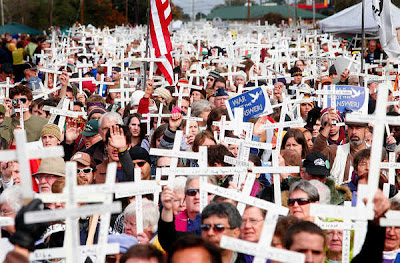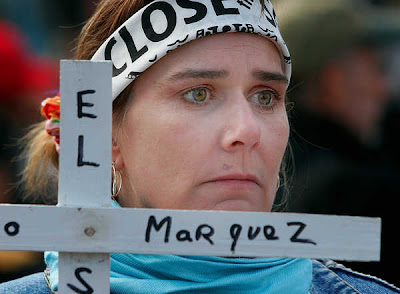In discussions of General Motors, Ford, and Chrysler during recent days, many people have sought to name the problem that has brought these automakers into such serious difficulties. Of course, the precipitating events have to do with the decline of wealth among U. S. car buyers because of the drop in home values after the housing bubble deflated. The general economic crisis that includes layoffs and fear of layoffs also led to an unprecedented drop in auto sales.
These immediate and serious causes are part of the picture, but there are other reasons. Many people believe that the next credit crisis will come in consumer debt. People have been living as if they can buy more and more things they can't afford, and lending institutions have allowed it. This is again related to the housing price bubble. If consumer debt got too large, the paper wealth of the ever increasing real estate market was the counterbalance. People could refinance consumer debt with home equity loans. So as credit card debt gets tight, people can't or won't buy a car.
Other people address the environmental and energy-efficiency issues in relation to the Big Three automakers. These companies resisted alternative energy sources, even killing previous progress on electric vehicles. They resisted fuel efficiency standards and majored on building larger gas-guzzler vehicles. Unlike some other automakers, they did not keep up the pace of developing new and better technology for automobiles. They failed to adopt a business model by which they could make strong profits from selling smaller, more efficient cars. When the volatility of gasoline prices struck, driving transportation costs higher and higher, they found themselves stuck with large numbers of vehicles that people were less and less interested in owning.
Among many other reasons given, some people have blamed the automakers' problems on unionized workers. Certainly the benefit plans and retirement plans for these workers are expensive. But most of the attacks on the union workers' wages hid or ignored important facts.
For instance, the highest paid auto workers in the U. S. last year worked for Toyota building Camrys, not for GM. The worker pay differential between companies selling cars in the U. S. is changing. That does not, however, mean that all non-union auto factories in the U. S. are paying comparable wages. It does mean that it is possible to pay high wages, comparable to or greater than the union wages paid to GM workers, and make great profits.
Second, it targets union workers and not other potential candidates for pay cuts in the industry. Who else is getting good pay in the auto industry? Why not cut their pay? As Congressional questioners wondered, why not cut corporate jets for the executives?
Dean Baker makes this point well when he addresses the case of Robert Rubin, an economist who is having a great deal of opportunity to speak about how to solve the current economic crisis. Rubin worked in the Clinton administration, and his allies are being named as Obama advisers. But in January of this year, he said that the economy's struggles would not lead to any serious problems, and certainly no economic meltdown.
Baker points out that Rubin was interim CEO of Citigroup, and that he remains an executive and a director of the corporation that the government bailed out again over the weekend. He was part of the leadership who oversaw the bad loans and the risks of an inflated housing market. Even farther back, he was a central figure in U. S. economic institutions during the dot.com bubble that led to the last recession. Baker asks why with all the hoopla about GM autoworker wages, no one is asking whether Robert Rubin will be taking a pay cut. Who needs a pay cut when corporations are struggling? Why not the executives who helped lead the corporation into their crises?
The case of the stolen masks
10 hours ago











